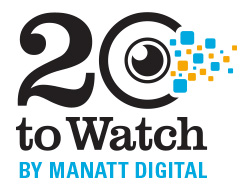
One of our missions at Manatt Digital is to discover and get to know companies and founders who are innovating and executing with disruptive technologies. We are continuously on the hunt for companies that have market/product differentiation, and for founders who are passionate about delivering value and a vision to leave their mark. We look at all stages of companies, early-stage to public companies, and most certainly across borders. Since we’ve been doing our homework, we thought we’d share some of our notes with you! Manatt Digital is excited to list 20 companies that are on top of our watch list for 2018.
For this edition of the Top 20 to Watch, we are targeting the digital media industry. As the entire industry continues to monitor and analyze the moves of the major studios and, now, all the media- and entertainment-related activities across FAANG, we wanted to highlight additional companies that have our attention. Ever since the digital media market really took off in 2014, the one thing that has been consistent has been change. We’d argue that there is probably no other industry where companies must navigate shifting business models and consumer behaviors with the trajectory of speed and change as in digital media. We anticipate that change will definitely continue in 2018, as well as a settling-in of over-the-top (OTT) growth strategies, monetization of immersive experiences, and a continuing strong momentum in investments and acquisitions across the space. With the dynamics that come with the digital media market, it is impressive to see these companies pioneer and succeed in largely unmarked territories. They are defining and building new audiences and markets. In no way is this an exhaustive list of the best digital media companies; it is a short list of companies that have us on the edge of our seats to see what comes next. We are excited to watch their moves in 2018 and hope you keep these companies on your radar as well.
Note: Investment data may not be exhaustive and is based on the latest information in Pitchbook.
CONTENT/IP
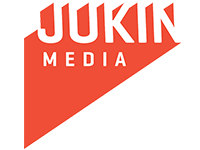 Jukin Media
Jukin Media
Founded: 2009
Headquarters: Los Angeles, CA
Capital Raised: $7.26M
Even if you haven’t heard of Jukin Media, you still have probably seen dozens of the viral videos in their network. Jukin Media was started in the burgeoning days of YouTube and online video sharing, licensing user-generated content and marketing it to advertisers and entertainment brands. When many multichannel networks bet big on the aggregation and content development by social influencers, Jukin bet not on influencers but on the everyday (every moment) smartphone user—capturing endearing moments that have viral and brand appeal. The company has paid out well over $15 million in royalties to content owners to date. In addition to its distribution arm, it owns the digital brands The Pet Collective, People Are Awesome and Fail Army, which combined have over 2 billion monthly views; and it continues to expand internationally through licensing, productions and linear TV deals. Today, the company is increasingly focused on creating original programming in innovative formats featuring user-generated content. It has sold original series to platforms like Go90 and, recently, Facebook Watch. Jukin Media has long been profitable and is growing quickly, recently announcing the development of a 14,000 sq. ft. production facility. As we’ve seen with the growth of video on social media, including the popularity of the “stories” format, UGC is not going anywhere, and Jukin Media is well-positioned to deliver stories captured by everyday people.
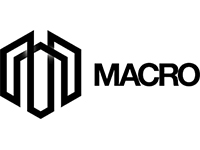 MACRO
MACRO
Founded: 2015
Headquarters: Los Angeles, CA
Capital Raised: $150M
MACRO was founded by Charles King to build a multiplatform media brand representing the voice and perspective of persons of color. Backed by social justice-focused Emerson Collective, MACRO’s recent successes have shown that the market has been hungry for a premium content producer to create cinematic-quality content that thrives on streaming platforms and extends into social media platforms—where millennials of color over index in consumption and engagement. The Digital Studio at MACRO utilizes emerging platforms to engage multiethnic millennial audiences where they are. They also emphasize multicultural talent in front of and behind the camera to shift the culture forward. At Sundance, MACRO premiered a scripted digital series, Leimert Park, in the first-ever class of the Indie Episodic program, to rave reviews. The studio’s first digital series, Gente-Fied, which it produced alongside executive producer America Ferrera, is currently being developed as a half-hour comedy at a premium streaming platform that will be officially announced later this year. The studio will also announce the production and distribution of six new original series for the first half of 2018.
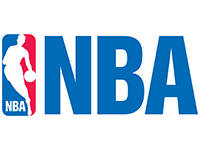 NBA Digital
NBA Digital
Headquarters: New York, NY
While not your traditional digital media company, the NBA has been an innovative pioneer for digital opportunities in the traditional sports sector. They are launching their own eSports league (the upcoming NBA 2K League) backed by current NBA franchises, have virtual reality streaming distribution with their partner NextVR, and have announced an augmented reality integration partnership with Magic Leap. They already run their own OTT distribution service through NBA League Pass that services customers both domestically and internationally, where they are exceptionally strong. Last year’s 2017 playoffs garnered 2.9 billion video views in China alone. NBA’s strong digital approach has resonated with their audience, which clocks in as the youngest of all the major sports leagues. We are excited to see how they continue to build on their innovative approach to their digitally savvy fan-base.
 pocket.watch
pocket.watch
Date Founded: 2017
Headquarters: Culver City, CA
Capital Raised: $6M
Pocket.watch recently opened its doors to focus on content development for child audiences, and stands out with an accomplished leadership team from previous Disney/Maker and Nickelodeon senior creatives, and an investment team of heavy hitters. Pocket.watch will develop original character-driven franchises, license and/or distribute through its owned channels (YouTube, Musical.ly and others), and recruit creator partners (for equity). Pocket.watch has recruited YouTube channels including HobbyKidsTV and EvanTube, announced a 15-series original slate, and partnered with Simon & Schuster to publish their first book later this year. Pocket.watch plans to work with ten major YouTube creators, and with 72% of children’s daily viewing habits happening on streaming services, pocket.watch can position itself to be a leader in children’s digital entertainment. With the recent attention and backlash on the quality of much of the content programming directed to children on short-form platforms, pocket.watch is in a great position to elevate the quality that the market has been waiting for. We look forward to watching pocket.watch, not only as professionals but also as parents with young children.
DISTRIBUTORS/PLATFORMS
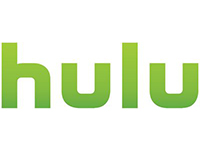 Hulu
Hulu
Date Founded: 2007
Headquarters: Los Angeles, CA
Hulu has come a long way from its days as the destination for watching last night’s TV. Last year, Hulu invested $2.5 billion in content, up from $1.5 billion in 2015; reached over $1 billion in ad revenue for the first time; became the first streaming service to win the best drama series Emmy; hired a new CEO; and launched its Live TV service (reported 450,000 subscribers). While its budget is much smaller than those of its competitors, Hulu continues to exercise its unique access to its owners’ programming, acquiring over 3,000 episodes from them in 2017, including many that have expired with Netflix. One of last year’s greatest triumphs was The Handmaid’s Tale series, winning eight Emmys and two Golden Globes in its first season, which helped boost subscriber sign-ups to Hulu by 98% in 2017. We’ll be watching to see how the recent change in executive leadership will steer content acquisition, originals and subscriber growth strategies.
But what makes Hulu even more interesting to watch in 2018 is how a streaming company with a once hesitant, complex mix of owners has evolved to be at the center of a core strategy for one of the most significant industry M&A transactions of all time. Whether Disney or Comcast acquires Fox, we’ll be watching to see how Hulu will be leveraged as their primary distribution platform.
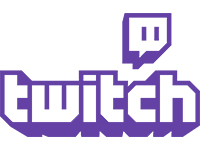 Twitch
Twitch
Date Founded: 2011
Headquarters: San Francisco, CA
Acquired by Amazon
With 15 million daily active viewers, who spend an average of 106 minutes daily watching live gaming and eSports, Twitch—with its network of personalities, players and spectators—has created one of the most engaged and interactive platforms targeting the gamer generation. The company was acquired by Amazon in August 2014 for a staggering $970 million in cash, with some speculating that the acquisition was an investment for bolstering Amazon Web Services, the company’s cloud-computing company. However, the company has shown solid growth in advertising revenue and added new programs for streamers to generate revenue from their channels through subscriptions, virtual tipping and game sales, even as it has encountered increased competition from the likes of YouTube, Facebook and Microsoft, which have all launched competing live streaming platforms. What does 2018 have in store from Twitch? Look for an increased focus on diversification and growth of its creator community through the addition of new tools and partnerships like the multiyear deal recently announced with Disney Digital Network to bring several top creators to the site.
CONSUMER PRODUCTS
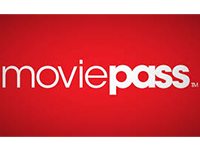 MoviePass
MoviePass
Date Founded: 2011
Headquarters: New York, NY
Acquired by Helios and Matheson Analytics
MoviePass has definitely been the talk about town. Love them or hate them, the movie ticket subscription service now boasts more than 2 million subscribers, allowing members to see one film in theaters every day for a flat monthly price of $7.95. Since launching in 2011, membership grew drastically this past year once monthly fees were slashed from $30 to $9.95, and just recently cut once again down to $7.95. The biggest question and risk with MoviePass’ current business model is the sustainability of its current pricing and approach. MoviePass pays the majority of exhibitors the full price of each and every movie ticket. Accepted at over 90% of theaters across the United States, MoviePass takes credit for 5-11% of all tickets across these screens—the higher end when it promotes a film on its app. The long play for MoviePass will be proving its influence on audiences and their ability to get moviegoers into the theaters with refreshments in both hands, giving it a position to negotiate revenue share opportunities with studios and exhibitors. MoviePass also announced recently the launch of its MoviePass Venture fund, to co-acquire the distribution rights of independent films. In addition, it announced a strategic relationship with Fandor, on a new subscription bundle to capture both the at-home audience as well as theater audiences. With the much-needed injection of cash to support the cash flow needs of the model, Helios and Matheson just upped its stake in MoviePass to 78% ownership. Helios and Matheson Analytics is a company focused on big data, so we should keep in mind that content consumption data is at the heart of the opportunity with MoviePass.
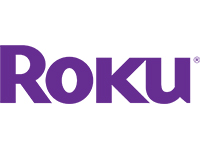 Roku
Roku
Date Founded: 2002
Headquarters: Los Gatos, CA
Capital Raised: $208.6M Private/ $219.4M IPO
Roku Inc. (ROKU) made its Nasdaq debut in September 2017 in a widely watched initial public offering (IPO) that valued the company at roughly $1.3 billion. Since the IPO, its stock has risen steadily, in a sign that investors believe that the company—known for its popular line of streaming sticks and devices and a passionate, engaged consumer base—can grow “platform” revenue on its dedicated TV and streaming device operating system. With a grand aspiration “to power every TV in the world,” the company in 2018 can be expected to include more partnerships that extend its streaming platform throughout the home and an increased focus on growing advertising revenue on the platform.
GAMING/ESPORTS
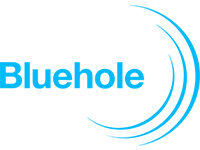 Bluehole
Bluehole
Date Founded: 2007
Headquarters: Seoul, South Korea
Capital Raised: $29.4M
Bluehole exploded onto the scene in 2017 due to the success of their eSports title PlayerUnknown’s Battlegrounds (PUBG). One of the most-watched titles for eSports fans, PUBG has grown into one of the most popular games to play and watch. Its battle royale–style of play has spawned additional big-name competitors, but PUBG continues to command large audiences. We’re looking to see if 2018 brings any significant updates to the gameplay, whether the game has a lasting grip on fans and players alike, and to track sales across PC and console platforms for continued growth.
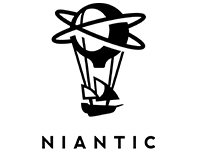 Niantic
Niantic
Date Founded: 2011
Headquarters: San Francisco, CA
Capital Raised: $232.84M
Formed as an internal startup within Google in 2010, Niantic, the company that took its name from a whaling vessel that came to San Francisco during the California Gold Rush, spun out of Google in 2015 with a focus on developing augmented reality (AR) mobile games. The company has launched two games—Ingress, an immersive real-world mobile game that has been downloaded more than 20 million times, and Pokémon GO, which has been downloaded more than 750 million times, breaking records around the world. In November 2017, the company announced that it was developing Harry Potter: Wizards Unite in partnership with Warner Bros. Interactive Entertainment. Combined with Apple’s launch of ARKit and plans to improve its camera functionality, there is much speculation about how AR games and experiences will evolve.
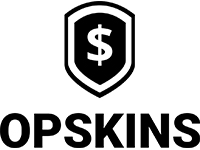 OPSKINS
OPSKINS
Date Founded: 2015
Headquarters: Santa Monica, CA
Capital Raised: $41M
OPSKINS is the world’s largest marketplace for buying and selling digital items. Currently a $50 billion market, popular skins such as rare guns for Counter-Strike and other unique digital enhancements for online games can sell for more than $100,000. Around 200,000 new people buy virtual items through OPSKINS each month, and while the company does not disclose its financials, it has been reported that revenue is growing at double digits annually. A believer in the utility of blockchain and cryptocurrency to provide efficiency in the global markets, the company raised $41 million in a sale of WAX tokens, a virtual currency that will be used to buy and sell skins on the company’s exchange. We’re interested to see how the marketplace evolves.
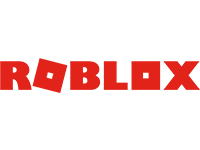 Roblox
Roblox
Date Founded: 2006
Headquarters: San Mateo, CA
Capital Raised: $103M
If you’re familiar with Minecraft, chances are you know Roblox. With over 50 million monthly active users and 40% of all kids in the United States between ages 9 and 12 on the platform, Roblox—the “Imagination Platform”—is the world’s largest interactive platform for play, with over 40 million games and experiences that have been created by the players themselves. We caught up with the company’s chief business officer, Craig Donato, to find out what to expect from Roblox in the coming year: “Roblox is currently in English only. You can expect to see some announcements about our international plans. We’re striving to make more immersive, quality, global entertainment experiences.” We’ll be watching to see how their international plans develop.
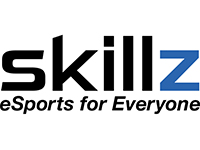 Skillz
Skillz
Date Founded: 2012
Headquarters: San Francisco, CA
Capital Raised: $56M
This mobile eSports gaming platform has been on a tear, coming in at No. 1 on Inc.’s “Fastest Growing Companies in America” list in 2017. Players are able to wager real money on matches, creating significant value for some of the top competitors. In 2017 alone, the top ten players took home $2.7 million in winnings. With rising revenues and a newly secured $25 million Series C round of funding led by Liberty Global and Telstra, 2018 will be a pivotal year for Skillz. Last year, the release of their multi-app chat feature helped enable a better social experience for their 12 million users across their 3,000+ supported games. We’ll look to see what 2018 brings for additional tech enhancements and their ability to scale for long-term growth.
IMMERSIVE CONTENT / TECH
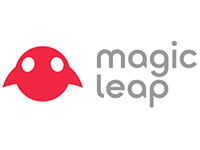 Magic Leap
Magic Leap
Date Founded: 2011
Headquarters: Plantation, FL
Capital Raised: $1.89B
We’ll go out on a limb and say that Magic Leap is already on your watch list. We don’t want to state the obvious, but all eyes are on this unicorn that has had the ability to successfully raise an incredible amount of funding without a single product in the market . . . yet. We were excited to hear that the first product, ML One, will hit the market in 2018, and will be targeted to creators, prosumers and hardcore early adopters, at the price point similar to a fancy smartphone. Founder and visionary Ronnie Abovitz gave some sneak peeks into the spatial computing vision of Magic Leap during his onstage interview at the recent Code Media event, where he took the stage with NBA commissioner Adam Silver, in a smart move to show that they are not just thinking of hardware and light field signals but rolling out headsets with premium and high-quality content partners at launch. Based on the amount of money they have raised as well as their ultra-secretive approach, there are extremely high expectations for their product debut. So, with the rest of the tech world, we’ll be watching, and we will be amongst those first prosumers to enter into the spatial computing paradigm.
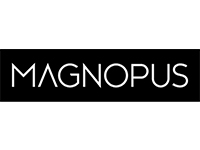 Magnopus
Magnopus
Date Founded: 2013
Headquarters: Los Angeles, CA
Capital Raised: $14M
If you ask the actual creatives and technologists working in VR/AR whose work they most admire and follow, Magnopus will be the name you hear most frequently. However, you won’t find Magnopus listed on any of the numerous VR/AR landscape diagrams. Intentionally, Magnopus has avoided the noise and has been heads down the past four years, delivering some of the best immersive content and technology for a who’s who of technology and entertainment global leaders. Regarded as the leader in developing and executing virtual production technology, Magnopus also released groundbreaking experiences in 2017, including Mission ISS, Coco VR and Bladerunner VR experiences. Magnopus is equally sought after by hardware and IP owners, as their magic touch is in developing content to best showcase what the technology is capable of, and equally in pushing the technology where the experience creatively wants to go. Most of their current projects are confidential, but we anticipate exciting news out of 2018 that will put Magnopus at the center of the immersive map.
 The Void
The Void
Date Founded: 2015
Headquarters: Lindon, UT
Capital Raised: $13M + Disney Accelerator Funding
We expect to see a hotbed of activity in location-based experiences (LBE) this year, with many interesting companies launching new VR centers in the United States and existing centers growing and adjusting to market feedback. The Void debuted one of the earliest room-scale VR entertainment experiences in summer 2016 with Sony Pictures and Ghostbusters: Dimension. The Ghostbusters experience gave The Void the opportunity to learn and optimize operational needs for an LBE, and positioned it to take experiences to a bigger stage with higher throughput. This past fall, The Void opened its second experience, a collaboration with Disney and ILMxLAB on one of the world’s biggest franchise—Star Wars at Downtown Disney. With over a year and a half of consumer and operational data and access to valuable IP, this is just the beginning for The Void as it iterates on its platform and helps bring new VR experiences to major cities around the world. The Void will be among the first to test and build a sustainable model to capture new and repeat customers willing to pay premium ticket prices for the experience. The Void will also need to be smart in continuing to commission the best immersive content and IP (in addition to its ongoing deal with Disney for a handful of properties for LBE installments) to draw new and retain repeat customers, and to compete against a number of premium quality immersive locations opening up in 2018.
SERVICES
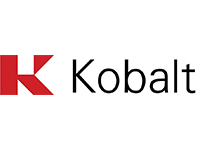 Kobalt Music Group
Kobalt Music Group
Date Founded: 2000
Headquarters: New York, NY
Capital Raised: $338.89M
Kobalt Music Group provides no-ownership administration and technology to over 8,000 artists and songwriters and 600 publishing companies around the world. Clients include Maroon 5, Dave Grohl, Bob Dylan, Pitbull, Ellie Goulding, One Republic, Gwen Stefani, Paul McCartney and Disney Music Group. While allowing artists, songwriters and publishers to retain their musical IP is core to the company’s model, Kobalt is not out of the IP ownership game. Its subsidiary Kobalt Capital Ltd., which announced its second ($600 million) fund in November 2017, has acquired the publishing catalogs of Nettwerk Music Group, The B-52’s, Steve Winwood and Fleetwood Mac’s Lindsey Buckingham, among others. With its advanced technology and focus on providing creators transparency, flexibility, ownership and control, Kobalt seems well-positioned to continue to grow its market share.
 UnitedMasters
UnitedMasters
Date Founded: 2017
Headquarters: New York, NY
Capital Raised: $70M
UnitedMasters, which has positioned itself as an alternative option to record labels, came out of stealth mode in November 2017, announcing a $70 million investment from Alphabet and a roster of 1,000 artists using the platform. Founded by record industry and advertising veteran Steve Stoute, UnitedMasters provides artists with a web-based tool to publish their music to major streaming sites and monitor the music’s performance among its core fan-base. This enabling technology is intended to help artists maintain their independence while equipping them with data and recommendations for planning tours and marketing merchandise directly to their fans. Artists who use the platform retain the rights to their master recordings and split royalties with UnitedMasters. Streaming now stands as the primary revenue source for the music industry, and is on pace to generate even more revenues in 2018. UnitedMasters seems ready to capitalize on this explosion of digital-first distribution, while helping artists navigate the value gap and establish careers in the music industry.
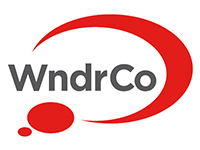 WndrCo
WndrCo
Date Founded: 2016
Headquarters: Los Angeles/San Francisco, CA
Capital Raised: $591.5M
WndrCo, Jeffrey Katzenberg’s new holding company, has raised a significant amount of capital to invest in their own mobile-focused video platform as well as other opportunistic ventures. Meg Whitman, former CEO of HP, has come aboard to help build out their “NewTV” offering of short-form mobile content and potentially raise additional funds. With cash to spend and credible executives leading the charge, 2018 will be an interesting year to see if WndrCo’s model can succeed where others have failed to date in the SVOD short-form mobile content market.
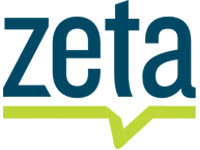 Zeta Global
Zeta Global
Date Founded: 2007
Headquarters: New York, NY
Capital Raised: $382.58M
Zeta Global, an intelligent marketing and CRM platform, is on the rise. Zeta recently closed one of its largest deals to date when it acquired the social discussion platform Disqus Inc. While Zeta Global has made other strategic acquisitions in the past (eBay Enterprise’s CRM division, martech startup Boomtrain Inc. and marketing automation solution Axiom Impact), the $90 million acquisition of Disqus equips Zeta to become one of the top marketing technology platforms in the space. This smart acquisition of Disqus, which provides Zeta with critical tech that lends itself to more visibility into real-time data and customer behavior, combined with the $140 million Series F round completed last year, has this unicorn poised for an eventual IPO or acquisition.
Authors
Eunice Shin, Managing Director
Ned Sherman, Counsel and Director
Jacob Carlson, Senior Manager
Mary Ermitanio, Manager
Skip Garrett, Senior Analyst